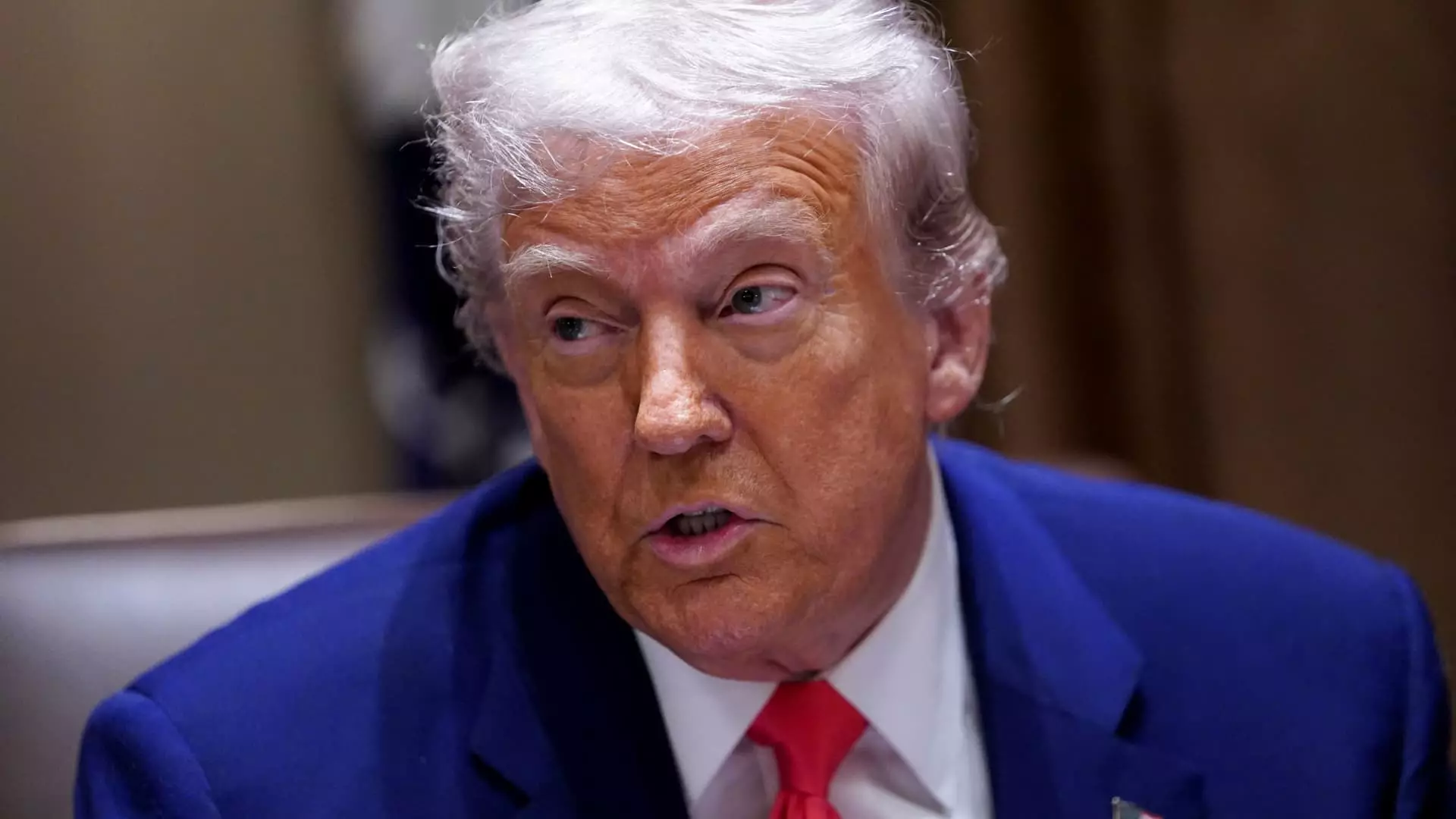In a surprisingly unexpected turn, a significant portion of the tech industry has received respite from the waves of tariffs that had been threatening its financial stability. The U.S. Customs and Border Protection has issued new guidelines that exempt smartphones and a variety of electronic devices from the harsh reciprocal tariffs recently announced by former President Donald Trump, which could impose a staggering 145% on products imported from China. This pivot could be a pivotal moment for tech giants, primarily Apple, whose vast supply chain is intricately woven through the fabric of Chinese manufacturing.
This decision offers a glimmer of hope for companies that have been reeling from the instability created by relentless tariff threats. Certain electronic components—including semiconductors, solar cells, and crucial memory cards—have also found a safe haven under the new guidance, a welcome relief for industries that had been feeling the pressure. Yet, while this reprieve could be seen as a victory for tech companies, does it truly address the broader implications of a trade war?
Wall Street and Big Tech: A Delicate Balance
Financial markets reacted sharply to Trump’s initial announcements, with Apple’s market value nosediving by over $640 billion in a matter of days. The ramifications were pronounced—uncertainty and volatility reigned, dragging down indices like the S&P 500 by more than 5%. With so much at stake, one wonders whether the scales have tipped too far in favor of big tech. Observations from market analysts, like Dan Ives of Wedbush Securities, frame the exclusion of vital components as a “game changer,” but at what cost to the average consumer?
An iPhone’s potential price spike to $3,500 under the tariff regime exemplifies the detrimental trickle-down effects these policies could impose. While tech investors rejoice at the mitigated expenses for big companies, the average citizen remains in the shadows, faced with inflated consumer tech prices. This predicament should beg the question: are policy decisions being made for the welfare of the many or merely to placate the interests of the few?
Tariffs and the Illusion of Economic Strategy
The 145% tariff may have appeared to be a ‘solution’ for addressing perceived imbalances in trade relations, emphasizing an “America First” economic doctrine. However, such an approach seems emblematic of an outdated worldview that fails to recognize the benefits of a more interconnected global economy. The sudden shift away from the extreme tariffs signals an understanding, albeit late, that jeopardizing technology sectors would have brought devastating consequences, not only for companies like Apple but also for millions of employees whose livelihoods depend on stable industry conditions.
This moment is reflective of a broader trend in conservative economic thought that dismisses or misunderstands global supply chains and the necessity of collaboration in a modern economy. The decision to exclude key tech items from taxation may be seen as an acknowledgment of the complexities associated with international trade, yet it also exposes the fallacy of short-term trepidations that ultimately threaten long-term gains.
The Ripple Effects on Everyday Americans
The implications of these tariffs extend beyond the stock market—it seeps into everyday lives. Middle-class families, who depend heavily on affordable technology for everything from education to work-from-home setups, could face severe financial constraints under high tariffs. This stark reality bears down on a significant sector of the American populace that is seldom considered in these policy discussions.
The skewed perception of “victory” for market players fails to address the underlying problems—American consumers don’t just owe their purchasing power to their ability to buy top-of-the-line tech; they rely on it for integral parts of their lives. Instead of celebrating reduced tariffs, a more decisive strategy should focus on building a stronger domestic production capability to insulate against future trade wars.
While many applaud backpedaling from extreme tariff impositions, it’s crucial to maintain vigilance and insist that policymakers establish more sustainable trade practices. The technological landscape must not be at the mercy of a capricious political environment driven by fear and misunderstanding of economic interdependence.



Leave a Reply